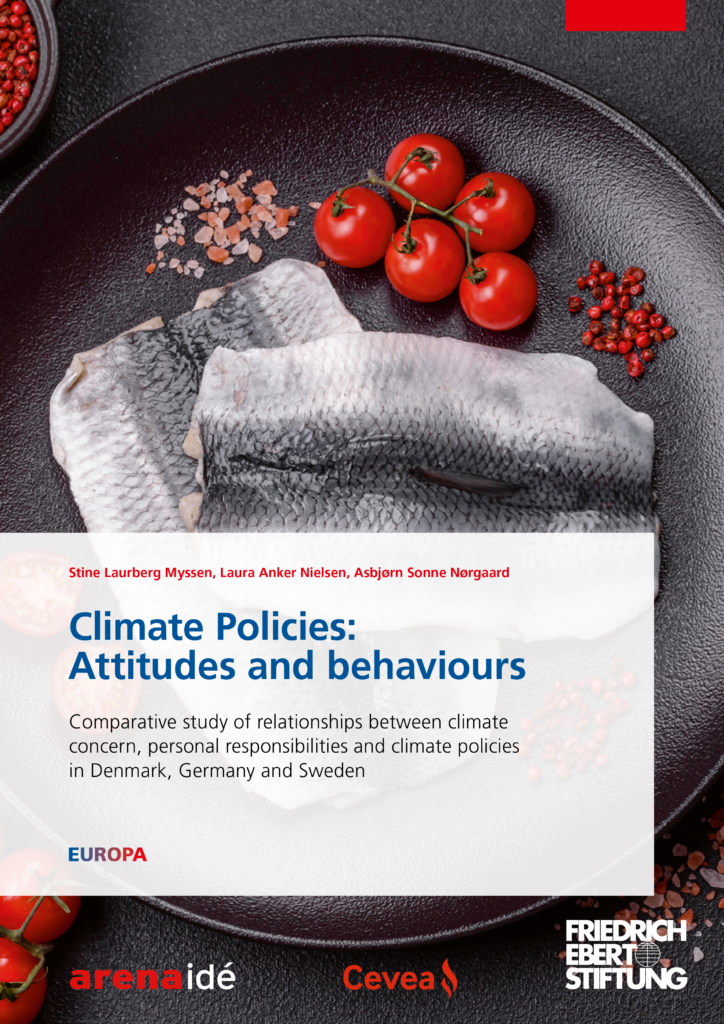
Climate Policies: Attitudes and behaviours
Comparative study of relationships between climate concern, personal responsibilities and climate policies in Denmark, Germany and Sweden. Written by Stine Laurberg Myssen, Laura Anker Nielsen, Asbjørn Sonne Nørgaard.
> Download a summary of the study, by Vilgot Österlund and Lisa Pelling. <
This report investigates the complex relationships between climate concern, personal responsibility, policy preferences, and perceptions of social justice in the climate transition in Denmark, Sweden, and Germany. While climate concern is broadly shared, translating this concern into support for costly climate policies and personal behaviour change is challenging, particularly when these policies impose financial burdens on individual consumption, particularly for low-income earners. The analysis shows that sociodemographic factors such as education, income, and urban/rural residence significantly influence attitudes and support for the climate transition.
Higher education consistently correlates with greater climate concern, a stronger sense of personal responsibility, and greater support for green policies, indicating that individuals with more education have higher environmental awareness. Conversely, those with lower education levels are more likely to view green policies as socially unjust and to support compensation for low-income individuals if prices increase due to climate policy measures. Higher-income individuals are less supportive of financial aid for low-income groups in climate policy than individuals with low income. Urban residents in Denmark and Germany support green policies more than rural residents. This urban-rural difference in green policy support is not observed in Sweden.
The report concludes that for the climate transition to gain broad-based support, it must be both environmentally effective and socially just. Policymakers are encouraged to consider compensatory measures for people with low-income and low levels of education. The key to a successful climate transition is to balance the need for ambitious climate policies that the university educated middle-class populations in cities demand, with redistributive measures that compensate those with less resources who are more hesitant in their support for the climate transition. The climate transition has to be a just transition in order to reach broader support and acceptance and succeed.
Media
Syre 13 februari 2025: Ny studie: Starkt stöd för rättvis klimatomställning
